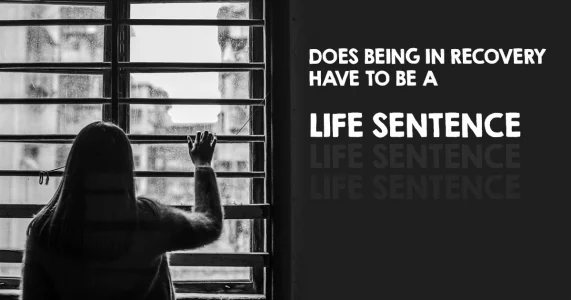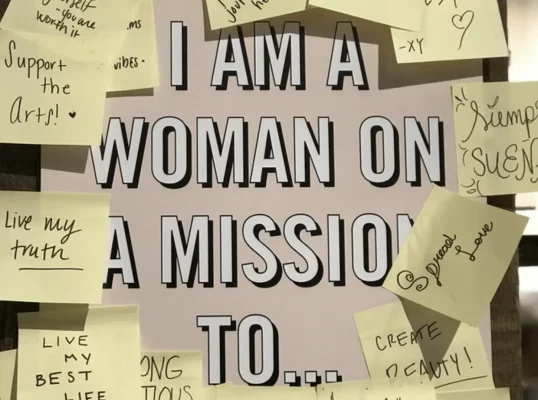
There are many debates about what “being in recovery” means on a personal and definitive level. Most addiction treatment programs subscribe to the modality that addiction is a disease you carry with you for your entire life, even if you are not actively using drugs, you may again one day.
The “forever” mentality is controversial amongst people who don’t want to be labeled “an addict” for their whole lives or believe that they can overcome their shortcomings. Others believe that this type of thinking is a crutch that some people with addiction use to justify when they slip up.
Even though most treatment centers teach addiction is forever, this article delves deeper into the conversation, looks at the facts, and will try to answer the question “Do you have to spend your entire life in recovery?”
What Does Being In Recovery Mean?
An is challenging because everyone’s journey is unique. In its simplest terms, being “in recovery” is a stage of the addiction cycle that comes after you’ve completed addiction treatment. Experts have made a distinction between recovery and sobriety, which mostly correlates to your desire to use drugs. Sobriety is when you abstain from the use of drugs or alcohol.
So what does it mean to be in recovery from addiction?
- You take care of your physical and emotional health and make informed decisions about your care.
- You have a stable home environment that’s also safe.
- You’ve found a sense of purpose in your life that gives you meaning and income, as well as participation in society.
- You have a network of people around you who provide you with love and support.
The United States Substance Abuse and Mental Health Services Administration (SAMHSA) has a list of principles that they believe fulfill the criteria. These include:
- Having hope to stay sober
- It can occur in different pathways
- It’s holistic
- Support from peers and allies
- Culture influence
- Traumas are addressed
- A sense of individual responsibility
- A basis of respect
- Following the rules to reduce the risk of relapse
SAMHSA goes on to describe signs that characterize being active in recovery. For example, you address problems as they occur, but they don’t lead you to feel overly stressed or to relapse. You have someone in your life that you can be entirely honest. You know what your issues are versus which are other people’s. You have personal boundaries, and you take time to care for your physical and emotional needs.
Rules to Reduce the Risk of Relapse
- You have created a new life that focuses on health and wellness, having fun without drugs or alcohol, strong relationships, and dealing with stress in productive ways.
- Complete honesty is essential. When you were in active addiction, you may have lied often to others and yourself. Now is a time when you can be honest and learn how to trust yourself and other people.
- You ask for help.
- You engage in self-care.

The Stages of Recovery
Just as there are phases of addiction, there are also phases of recovery. Everyone may define these a little differently, but they could look similar to the following steps:
- For many, the first stage is acknowledging that addiction exists and that you need help. The first stage is one of the most pivotal stages because you no longer deny you have a problem, and you start working toward fixing it.
- In the next stage, you become more aware of how your addiction has affected your life and hurt others.
- The third stage requires you to seek help if you can’t stop using drugs or alcohol entirely independently.
- Some will say relapse is part of the process, although this isn’t something everyone agrees on. If relapse does occur, it’s important to realize it’s not a failure but instead that You may need more treatment or different treatment.
- The final stage is known as termination. During this phase, you are confident in your ability to live your life without a relapse. You are less afraid of the possibility of relapse, and you’re moving forward.
Once you go through the steps above, then you may be able to feel like you’re active in recovery, and instead of just surviving, you’re thriving.
Addiction As a Chronic Disease
There is no cure for chronic diseases. instead, you just work to manage the symptoms, at which point you’re in remission. Addiction is viewed as a chronic illness because of the impacts of substances on the brain. There are also predisposing factors such as environment and genetics that can lead to an increased risk of addiction, which is the case with other chronic illnesses, such as diabetes.
Since science views addiction as a chronic disease, relapse will occasionally happen. There are high relapse rates across the board with chronic illnesses. Interestingly, getting treatment for a substance use disorder is often compared to criminal rehabilitation.
Treatment vs. Criminal Rehabilitation
Some states have criminal rehabilitation efforts that seek to treat a person’s mental health disorders and other root causes of their criminal behaviors. Treatment is holistic, and the outcome of criminal rehabilitation can be better overall. Someone who has participated in a criminal rehabilitation program might be more able to contribute to society in a productive, meaningful way.
Final Thoughts
So, does being in recovery have to be a life sentence?
That is something that you can decide for yourself. What works for one person might not work for another, so rather than thinking being in recovery means you have to fit in a box, just consider your own needs and your journey. Some people make it to a point where they no longer consider using drugs or alcohol, but for others, it helps to feel like it’s something they will never stop working on. Doing what is best for you is always the right decision.
Being a woman in recovery is easier with aftercare, which can help you avoid a relapse. Aftercare can include group therapy, individual therapy, or participation in a self-help group, or even direct work with a social worker. Anchored Tides Recovery offers all of these aftercare services, plus the comfort of a woman-only environment. Addiction in women requires a different approach, and having a support system of other women who can share in your experience helps a lot. Call us today to learn more about our program and find your recovery.









































